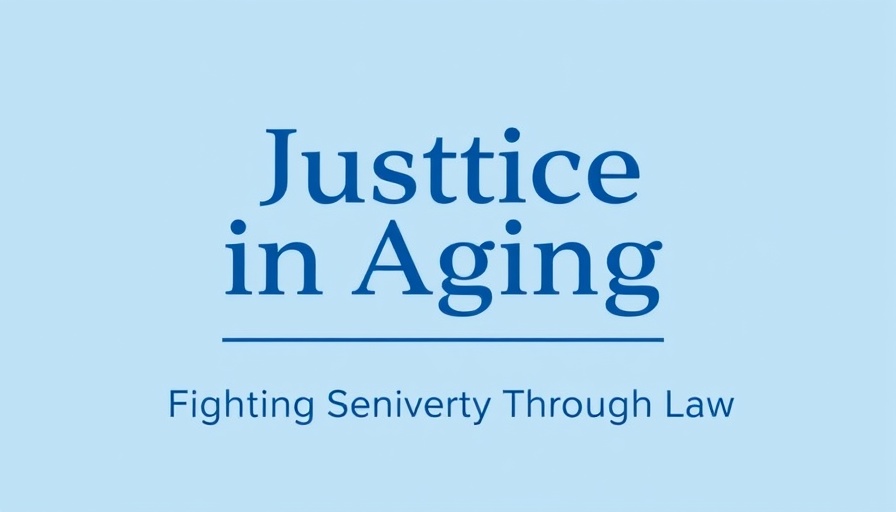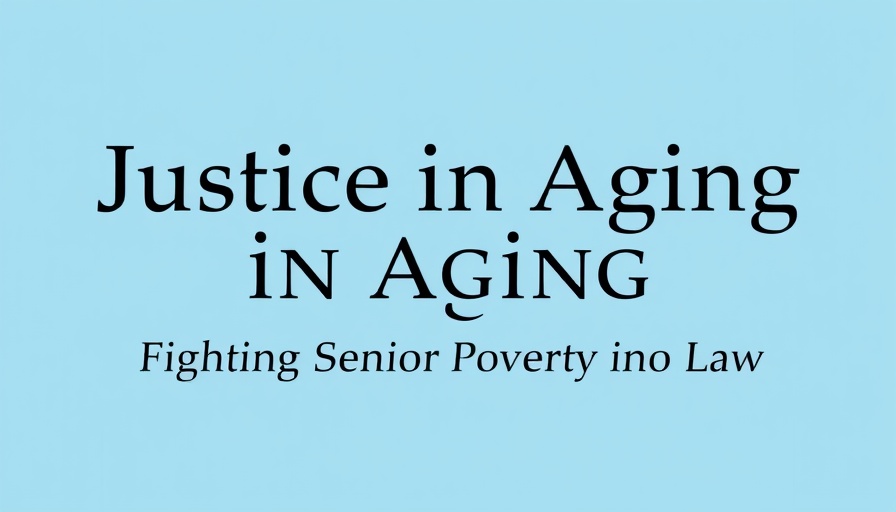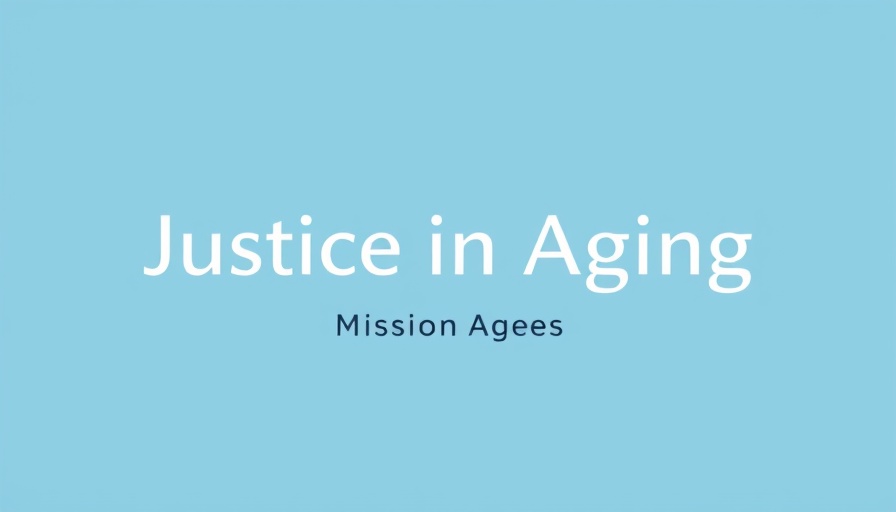
Devastating Cuts to Medicare and Medicaid: What’s at Stake?
The recent passage of legislation in the House that proposes significant cuts to Medicare and Medicaid has sent shockwaves through communities relying on these crucial programs. Organizations such as the Center for Medicare Advocacy, Justice in Aging, and Medicare Rights Center have vehemently condemned these actions, recognizing the dire implications these cuts hold for millions of older adults and disabled Americans reliant on these services for essential healthcare.
Understanding the Impact on Beneficiaries
As this bill heads to the Senate, it's imperative to understand precisely who will be affected. The cuts are not just numbers on a page; they represent real-life impacts for beneficiaries. The legislation introduces harsh work requirements, affecting many low-income individuals, older adults, and people with disabilities. These red tape measures could displace countless individuals from their necessary Medicaid coverage, endangering their access to essential health services.
Protecting Our Most Vulnerable Populations
One of the most concerning aspects of the proposed legislation is the delay in implementing crucial staffing rules for nursing homes. This move is not merely bureaucratic; research suggests that the staffing improvements could save thousands of residents’ lives annually. By postponing these regulations, particularly during a time when nursing home safety is paramount—especially highlighted during the pandemic—the bill jeopardizes the health and safety of some of America’s most vulnerable populations.
The Financial Stakes: A Look Into the Future
Furthermore, the legislation poses a significant threat to the sustainability of Medicare itself. Massive cuts projected to exceed $500 billion would set concerning precedents. It’s estimated that $45 billion could be cut as early as fiscal year 2026. Such drastic reductions could lead to limited coverage options, increased out-of-pocket costs for seniors, and essentially serve as a deterrent for new beneficiaries to enroll in Medicare.
This emphasis on cost-cutting over care provision raises serious concerns about the future of healthcare for seniors, as many in the community fear for their health security.
Long-term Care and its Challenges
An essential element of healthcare for many seniors is long-term care, provided through Medicaid. Cuts to this program not only threaten the availability of nursing facilities but also the support that enables seniors to receive care at home. For families balancing caregiving with work, these services are irreplaceable. Without them, many might find themselves in dire situations, unable to care for aging relatives.
Actions the Senate Must Take Now
Given the severity of the proposed cuts, advocacy groups are urging constituents to voice their concerns to their Senators. Engaging in public discussions and reaching out to representatives is imperative. Social media platforms, community meetings, and local advocacy organizations can all amplify this message, making it clear that constituents do not support such damaging legislation.
A Call to Action for Seniors and Their Caregivers
It is crucial for seniors and caregivers to remain informed and engaged. The potential cuts to Medicaid and Medicare are not abstract discussions; they affect daily lives. Seniors must advocate for their rights and health needs, demonstrating their concerns to lawmakers ultimately responsible for these life-altering decisions. With collective action, the Senate can be urged to reject this harmful legislation and protect the valuable healthcare that millions depend on.
Concluding Thoughts
In closing, the impending cuts to Medicaid and Medicare reveal a concerning trend that prioritizes budget adjustments over the health and safety of vulnerable populations. Advocacy organizations emphasize the human cost of these legislative decisions and the importance of collective action to influence outcomes favorable to healthcare access for older adults and disabled individuals. It is essential to remain vigilant and proactive in the fight to protect Medicare and Medicaid for all.
 Add Row
Add Row  Add
Add 




 Add Row
Add Row  Add
Add 

Write A Comment